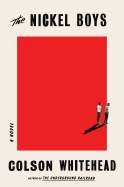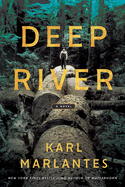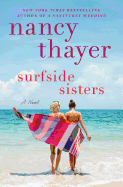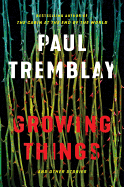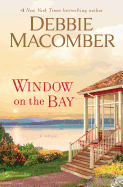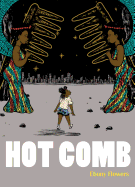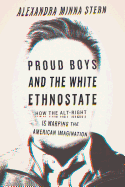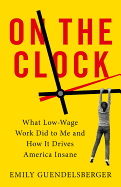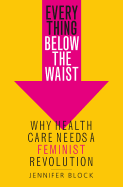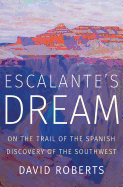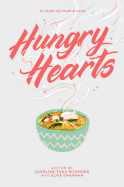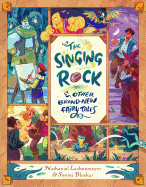 |
| photo: Stefan Carpenter |
Erica Witsell lived in Florida, California, Italy and Ecuador before settling in the mountains of western North Carolina 16 years ago. A high school teacher for more than 10 years, she now teaches English as a new language at a community college in Asheville. Witsell's debut novel, Give (BQB Publishing), is a family saga that explores themes of motherhood, queer identity, polyamory and modern fertility. Her reflections on life and motherhood can be found on her blog, On the Home Front.
On your nightstand now:
I recently finished The Behavior of Love by Virginia Reeves, but it's still on my nightstand because I can't wait to lend it out and talk about it with someone. Reeves deals deftly with so many complicated issues--marriage, health and the shifting nature of love and desire--that I hardly noticed when my airplane was stuck on the tarmac for two hours. There's also A God in Ruins by Kate Atkinson, because I loved Life After Life so much, and Toys Go Out by Emily Jenkins, a gem of a book which my eight-year-old daughter reads to me at bedtime.
Favorite book when you were a child:
I think the books that resonated with me the most deeply when I was young were the ones about children who long for a home of their own: Goodnight, Mister Tom by Michelle Magorian, My Side of the Mountain by Jean Craighead George and Mandy by Julie Andrews. I am not at all surprised that the book I wrote three decades later is about many of those same themes of home and belonging.
Your top five authors:
Jane Austen was my salvation in junior high, when all I really wanted to be reading was romance but wouldn't have been caught dead with a Harlequin. Sarah Waters rocked my world with Tipping the Velvet in the late '90s, and I haven't missed a book of hers since. I've loved Ann Patchett's fiction for years, but her collection of essays, This Is the Story of a Happy Marriage, definitely sealed her place in my top five. Cheryl Strayed got my attention with Wild, but won my heart with Tiny, Beautiful Things; she was my inspiration when I was working on Give. The fifth slot is a toss-up between Wallace Stegner and my 10-year-old son, Clayton, who made me a very proud mama when he self-published Poseidon: The Defeat of Cronus last year.
Book you've faked reading:
When I was a first-semester freshman in college, I intentionally picked classes with the longest reading lists. Until then, reading had never once felt like a chore, so it never even occurred to me that I should pace myself. By the time we got to Parade's End by Ford Madox Ford in "Literature of the Great War," I was absolutely drowning. I never even opened it.
Book you're an evangelist for:
Just Mercy by Bryan Stevenson. I think if everyone in the U.S. read this book, we might have a chance with criminal justice reform. Also, How to Be a Woman by Caitlin Moran. This brilliant book is hilarious and heart-wrenching all at once.
Book you've bought for the cover:
Pax by Sara Pennypacker. Just looking at the cover of this lovely book makes me nostalgic. I only wish it had been published 30 years earlier, so I could have discovered it as a child.
Book you hid from your parents:
The Valley of Horses by Jean Auel. What can I say? I was horse crazy and checked out any book at the library with "horse" in the title. Let's just say that Auel's title is a bit of a misnomer. I'm a little surprised that the librarian let me check it out, but maybe she was fooled, too.
Book that changed your life:
My mother gave me The Well of Loneliness by Radclyffe Hallfor Christmas when I was 19, soon after I told my parents that I was in love with another woman. I don't remember much of the plot, but I remember feeling, when I read it, that I was connected to something much larger than myself. It was also very clear from that gift that my mom was going to support me no matter what, which is a pretty life-changing thing to know.
Five books you'll never part with:
My beloved childhood copy of Little Bear's Friend by Else Holmelund Minarik has survived not only my three children but many years in my classroom library, so I think it's destined for the next generation, duct-taped cover and all.
Every time I've moved, The Yearling by Marjorie Rawlings has made the cut and come with me. When I read it as a child, I cried my eyes out when the boy has to kill his deer; now, it's the sacrifices the father makes for his son that choke me up.
I'm never parting with Affinity, because I learned from loaning out Tipping the Velvet that I'm unlikely to get a Sarah Waters book back.
Random Passage by Bernice Morgan and A Sudden Country by Karen Fisher have permanent places on my bookshelf, so I suppose I really like novels about women with complex emotional lives who are thrown into harsh and inhospitable circumstances (colonial Newfoundland and the Oregon Trail, respectively).
Book you'd most like to have on a deserted island:
There's no contest: Kristin Lavransdatter by Sigrid Undset, in the original translation. I couldn't put this trilogy down when I read it for the first time as a teenager, and I binge-read it again when I was nursing my infant twin daughters. An epic story about a woman's life in medieval Norway, Kristin Lavransdatter is historical fiction at its best, with timeless themes that resonated with me as much at 36 as at 16. I can't wait to read it again, although preferably not on a deserted island.
Favorite line from a book:
" 'The purpose of Art,' his mother said--instructed even--'is to convey the truth of a thing, not to be the truth itself.' " Kate Atkinson, A God in Ruins.
Amen.
Book you most want to read again for the first time:
Circe by Madeline Miller. I couldn't put this book down, and then regretted how quickly I was finished with it. Never has Greek mythology felt so fresh or so relevant.
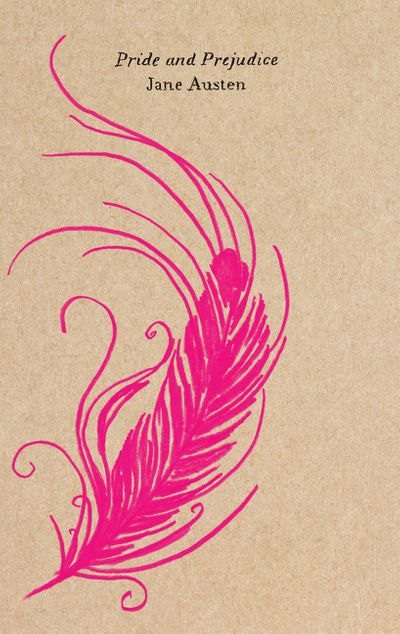 Jane Austen's novels have long captured the imaginations of modern readers; television and movie adaptations abound, and Austen-inspired stories are easy to come across. Of late, there have been several inventive and out-of-the-box retellings of Pride and Prejudice (Harper Perennial, $10), in particular, worth noting for the avid Austen reader looking for a new take on one of Austen's best-loved novels.
Jane Austen's novels have long captured the imaginations of modern readers; television and movie adaptations abound, and Austen-inspired stories are easy to come across. Of late, there have been several inventive and out-of-the-box retellings of Pride and Prejudice (Harper Perennial, $10), in particular, worth noting for the avid Austen reader looking for a new take on one of Austen's best-loved novels.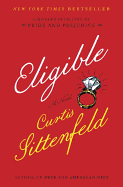 Curtis Sittenfield's debut novel, Prep (Random House, $17), marked her as a writer to follow; her subsequent novels, including Eligible, have carried that reputation forward. In Eligible (Random House, $17), Austen's characters are moved out of 19th-century England and into 21st-century Cincinnati, Ohio.
Curtis Sittenfield's debut novel, Prep (Random House, $17), marked her as a writer to follow; her subsequent novels, including Eligible, have carried that reputation forward. In Eligible (Random House, $17), Austen's characters are moved out of 19th-century England and into 21st-century Cincinnati, Ohio.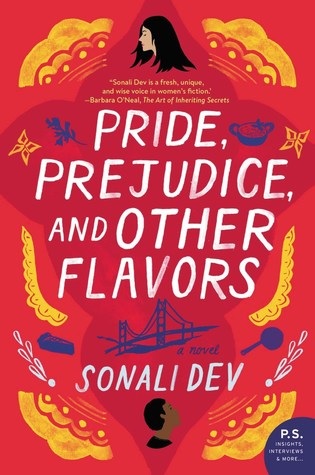 In Pride, Prejudice, and Other Flavors (Morrow, $15.99), Sonali Dev also reimagines the classic story in contemporary times--this time in a family drama featuring an immigrant Indian family in modern-day San Francisco, Calif.
In Pride, Prejudice, and Other Flavors (Morrow, $15.99), Sonali Dev also reimagines the classic story in contemporary times--this time in a family drama featuring an immigrant Indian family in modern-day San Francisco, Calif.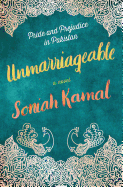 Each of these modern-day retellings take inspiration from Austen's classic tale despite vastly different characters and settings, all while maintaining Austen's characteristic wit and satire. More impressively, however, they replicate the biting social observations and criticisms for which Austen is still so beloved. Turns out Austen's study of gender roles, societal expectations, familial duty (and its corresponding conflicts), class and social mobility are just as present in modern times as they were when Austen was writing.
Each of these modern-day retellings take inspiration from Austen's classic tale despite vastly different characters and settings, all while maintaining Austen's characteristic wit and satire. More impressively, however, they replicate the biting social observations and criticisms for which Austen is still so beloved. Turns out Austen's study of gender roles, societal expectations, familial duty (and its corresponding conflicts), class and social mobility are just as present in modern times as they were when Austen was writing.



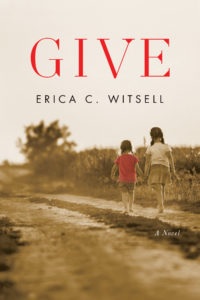
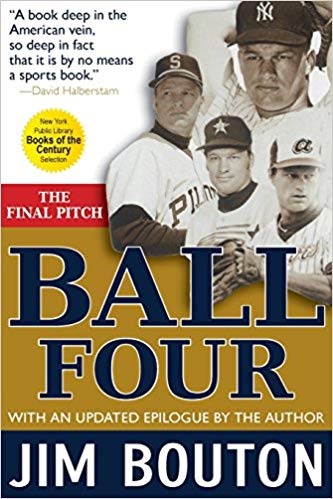 Major League Baseball pitcher and tell-all sportswriter Jim Bouton died last week at age 80. Between 1962 and 1978, he played for the New York Yankees, Seattle Pilots, Houston Astros and Atlanta Braves. In 1969, Bouton took notes on his season with the Seattle Pilots (their first and only year as a franchise) and later with the Astros. Those notes became Ball Four (1970), a candid look behind the scenes of Major League Baseball, including less than flattering depictions of fellow players. Bouton recounted his earlier years with the Yankees and Mickey Mantle, whose heavy drinking had been successfully hidden prior to Ball Four. Naming names, sharing information given in confidence and revealing secrets like the league's widespread use of amphetamines (or "greenies") made Bouton an industry pariah. Mantle and the Yankees did not resolve their grievances with Bouton until the 1990s.
Major League Baseball pitcher and tell-all sportswriter Jim Bouton died last week at age 80. Between 1962 and 1978, he played for the New York Yankees, Seattle Pilots, Houston Astros and Atlanta Braves. In 1969, Bouton took notes on his season with the Seattle Pilots (their first and only year as a franchise) and later with the Astros. Those notes became Ball Four (1970), a candid look behind the scenes of Major League Baseball, including less than flattering depictions of fellow players. Bouton recounted his earlier years with the Yankees and Mickey Mantle, whose heavy drinking had been successfully hidden prior to Ball Four. Naming names, sharing information given in confidence and revealing secrets like the league's widespread use of amphetamines (or "greenies") made Bouton an industry pariah. Mantle and the Yankees did not resolve their grievances with Bouton until the 1990s.